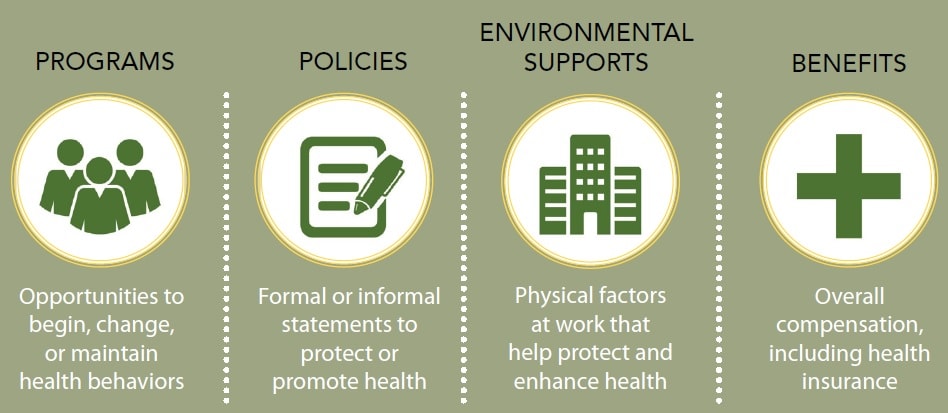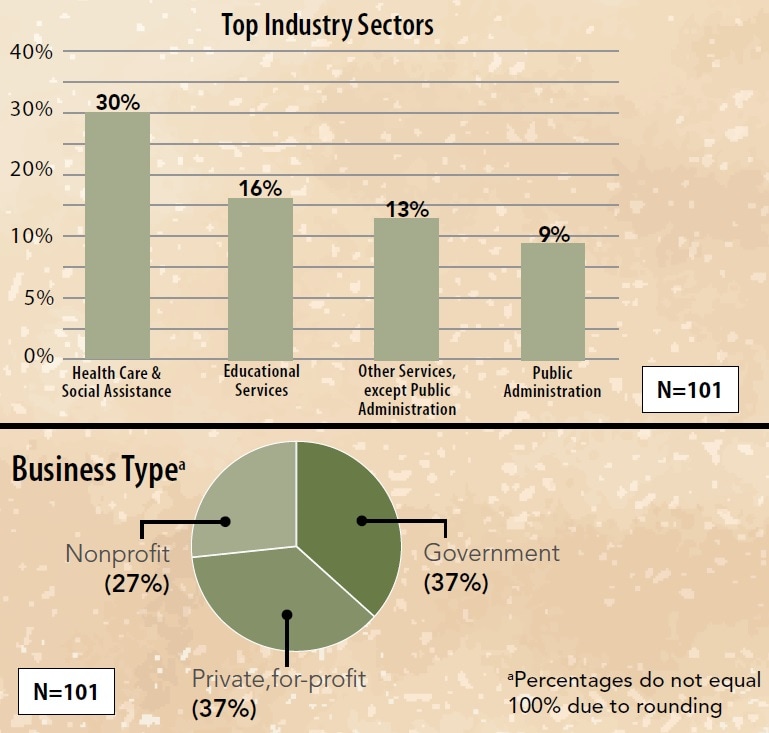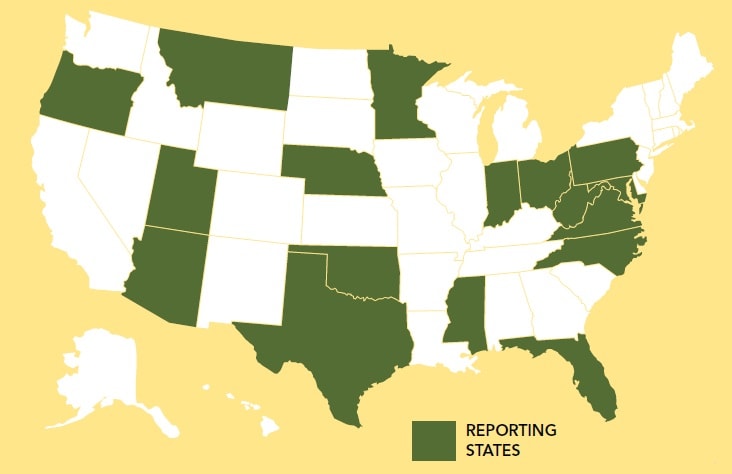2020 Small Employer Profile
The CDC ScoreCard is a tool to help employers assess whether their health promotion programs are based on the best evidence for improving employees’ health and wellness.
Available for Download pdf icon[PDF – 464 KB]
What Evidence-Based Practices Does the ScoreCard Assess?

Small employers are defined as organizations with 101 to 250 employees that include full-time, part-time, and temporary workers.
How Are Small Employers Doing?
26% of small employers will spend the same amount or more on wellness programs next year.
46% of small worksites use local hospitals and other health care professionals for their wellness programs.
Small employers have reached 16,460 employees with ScoreCard strategies.
47% of small worksites have a paid health promotion coordinator.
Average small employer has 63%, or 96 of 152 ScoreCard strategies in place.
Who Are the Small Employers Using the Scorecard?


111 worksites from 101 employers in 17 states shown in dark green submitted ScoreCards.
ScoreCard Topic |
Strategy a |
% of Large Worksites With Strategy in Place (2020 Score) |
|---|---|---|
| Cancer | Provide health insurance coverage for screening and vaccinations | 87% |
| Vaccine Preventable Diseases | Provide on-site flu shots | 83% |
| Maternal Health and Lactation Support | Provide private space for mothers to pump breastmilk | 82% |
| Heart Attack and Stroke | Have Automated External Defibrillator (AEDs) in place | 81% |
| Tobacco Control | Have a policy banning tobacco use | 81% |
| Alcohol and Other Substance Use | Provide screening and brief intervention and referral for treatment (SBIRT) | 76% |
| Organizational Support | Have a health promotion champion | 71% |
| Stress Management | Involve employees in decisions about workplace issues that affect stress | 70% |
| Physical Activity | Have physical activity programs | 68% |
| Weight Management | Provide education on weight management | 64% |
| Depression | Offer depression counseling | 62% |
| Musculoskeletal Disorders (MSD) | Make job design changes to reduce MSD risk | 61% |
| Prediabetes and Diabetes | Have diabetes self-management programs | 59% |
| High Blood Pressure | Provide blood pressure screening | 59% |
| High Cholesterol | Provide cholesterol screening | 44% |
| Occupational Health and Safety | Coordinate occupational health and safety programs with health promotion | 49% |
| Nutrition | Make most items in vending machines, cafeterias, and snack bars healthy | 42% b |
| Sleep and Fatigue | Design work schedules to reduce fatigue | 39% |
a Evidence-based practices (i.e., programs, policies, environmental supports, and benefits) with the highest weighted scores (2 or 3 points) in the CDC Worksite Health ScoreCard, including the strategy’s impact on population health outcomes and the strength of the supporting scientific evidence.
b Percentages are based on 81 ScoreCard submissions from small employers who reported providing places to purchase food and beverages in 2020.